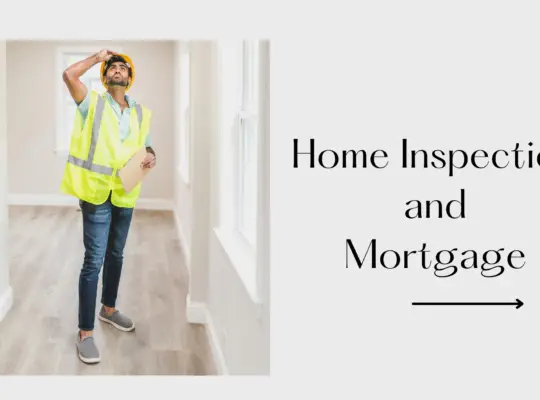In owning real estate, property taxes are a necessary part. Typically, they are levied by the local governments to fund public services like roads, emergency services, and schools. The amount that an entity is required to pay is based on the assessed value of the property, which is determined by the local tax authority. With this being so, does a screened-in porch increase property taxes?
Factors Affecting Property Taxes
Property taxes are influenced by various factors. Among the key elements is the assessed values of the property. Other include the property’s location, the size of the lot, the quality of local schools, and the overall value of the neighborhood schools. But this is not all, adding a screened-in porch does have an impact.
So, does a screened-in porch increase property taxes? Yes, a screened-in porch has the potential to increase property taxes. This is because it does increase the value of your property. Property taxes are based on the appraised value of a home hence, if the porch adds a major value, taxes will also get higher. Each state and county has differing rules concerning what counts as “livable space”. This is so mainly for the purposes of tax. Some such as California, New York, Texas, Florida, and New Jersey have property taxes that assess value based on improvements to property. This means that adding a screened-in porch would result in to increase in property taxes if you are in these states.

Also, keep in mind that a porch that is heated, cooled, or permanently enclosed has a higher likelihood of being considered a livable space and impacting taxes. With property values being reassessed periodically, often after a year or even five years, adding a screened-in porch is unlikely to result in an immediate increase in property taxes.
Since a screened-in porch is considered to be part of the overall structure of a home, its construction is factored into the initial property assessment and valuation. Due to this, it does not result in a separate assessment for tax purposes.
Advantages of Having a Screened-In Porch
Apart from the likelihood of increased property taxes, a screened-in porch does come with various benefits. Such porches add an extra room to your home. This expands your living areas without any major construction taking place. The expansion creates room/possibilities for relaxation and entertainment as a cozy reading nook, a game room for all ages, and comfortable areas for guests are established. It also opens a possibility for dining in AI fresco, play areas for children, and work-from-home environments.
Adding a screed-in porch also enhances comfort and protection. This is because it established an environment that is bug-free, protected from the sun, and one that is weather-resistant meaning that one can comfortably relax even during light rain or drizzle.
With screened porches being a desirable feature for many home buyers, the value and marketability of the property are increased. By increasing the value of the home, it becomes more appealing to buyers, and the moment you decide to sell it in the future, it will be easy to get a willing buyer.
How to Reduce the Effect on Property Taxes
Being concerned about the potential effect of a screened-in porch on your property taxes is a normal feeling. This is especially true when they have the potential to increase taxes. In such scenarios, there are steps that you can take in order to minimize the increase.
In making this possible, you would have to ensure that its construction is in adherence with the local building codes and regulations. This would ensure the addition is considered as an improvement that is legitimate rather than an unpermitted structure. A structure that is unpermitted would call for a reassessment or lead to penalties something that would tarnish the property’s image. Getting such an image in its initial stages poses a challenge to the future marketability of the property.

Put into consideration the materials and design of the porch. Opt for materials that are more affordable. Also, make the design as simple as possible. This would assist in keeping the costs down and minimize the potential increase in property value.
While constructing a property that would not lead to a high tax increase, ensure you strike a balance between cost-saving measures and creating a functional and appealing space.
Considerations to Make Prior to Adding a Screened-In Porch
When considering adding a screened-in porch, you need to check with your homeowner’s insurance providers. The key reason for this is to determine if any changes to the policy are necessary since adding a porch might affect the coverage or premiums.
Also, you need to think about the maintenance requirements of a porch. Depending on the materials that you use, regular cleaning and repair are necessary in order to keep the porch in good condition. Hence, you would have to factor in time and costs connected with maintenance when making the decision.
Related Article: Can You Claim Income Protection on Tax
Last but not least, and perhaps a crucial aspect of the topic is consulting with a tax professional or local assessor. This is a move that would help you get a clearer understanding of how adding a screened-in porch would impact your property taxes. Such professionals would provide specific information regarding tax regulations in the areas and help you make a decision that is well-informed.
Conclusion
Does a screened-in porch increase property taxes? Although it is unlikely for it to result in a significant increase in property taxes, it does increase property taxes as it results in to increase in the assessed value of the property. They are part of the overall structure of a home and are factored into the initial assessment and valuation. With the differing tax laws and regulations, this is not the case in all areas. This is why it is important to check or consult the local tax assessor’s office or a real estate professional who is conversant with local property tax laws. There, you would be able to get information based on the local regulations and property assessment practices and get to know if adding a screened-in porch would lead to higher property taxes for you.








